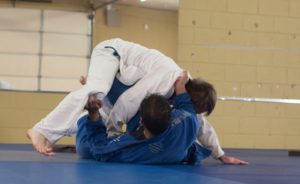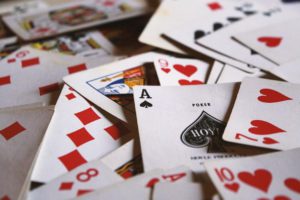Chess is one of the most addictive and exciting games on the planet. Amidst its popularity with people of all ages, it also provides innumerable health benefits to anyone playing it regularly. Chess aids in neural activity and has been observed to affect both sides of the brain, parallelly affecting the cognitive skills of the players. Chess also actively helps patients who have ADHD and helps them focus more on regular activities. They have to play chess online.
The game of chess demands skills, perseverance and determination. Chess has fundamental rules that are required to be learned by the learner to master the game. Strategizing on every move is key to winning a game of chess. The players might even strive to become the next Magnus Carlsen with regular practice and consistent devotion and give Vishwanathan Anand a run for his money. To begin, players should download chess game right away. Read along to find out the best ways to utilize chess.
Socializing: Chess Brings People Together
According to the Washington Post, the hype around chess has recently erupted into the market after the immense popularity of the Netflix TV show Queen’s Gambit. Online polls show a recent hike in people searching for chess forums and groups online in a pursuit to raise their online rating.
Chess is one of the oldest board games dating back over 1500 years. Since it is so widespread, almost every community has had a chance to learn it regardless of language. Therefore chess has excellent value to community building and unites people across different cultures, age gaps and ethnic backgrounds.
The popularization of chess through TV shows and anime shows like Hikaru No Go has set up the hype for chess among millennials and generation Z.
Brain development: Chess is a Challenging Game that Works the Brain
Perfection in chess is a factor that is rarely achieved. There are some avenues in chess where the person can achieve mastery, but there is no end to possibilities in several other areas. The learning of numerous positions in chess, like the Philidor position, permits the player to make a draw, whereas the move castling allows players to move two pieces at once, avoiding a checkmate.
Chess provokes logic and creativity in their everyday work among kids and adults. The brain goes through the ultimate workout while playing chess. There is intense electrochemical stimulation between brain cells while playing chess, which is why the brain’s performance improves over time.
Development of Problem Solving Skills
Every action on the chessboard is presented as a problem that the player must solve. They are constantly under pressure and are forced to think ahead. The player also has to think of the consequences surrounding his choices. This action determines his loss and gains in the future. This situation translates to real-life conditions for the player to analyze every situation and procure a solution for their problems.
Building Focus: Chess Playing Demands Complete Concentration
Chess is a game that demands complete focus from the individual. Even if the player makes several elite moves in a single game, one wrong move can fail. This strenuous exercise improves the concentration of the individual and helps them deal with everyday life where they have to face chores, assignments and deadlines regularly.
IQ Improvement Facilitates through Chess Playing
All chess players have an IQ that is either medium or advanced. There is recorded proof that playing chess with time improves IQ. According to research conducted in Venezuela, pupils were introduced to chess classes for four months, showing an observable increase in their IQ. Students around the globe have also been shown to perform much better in academics compared to others who did not play chess.
Helps Improve Creativity in Players
Incorporating chess into the college curriculum helps raise the academic quality of the player. Players get good extra-curricular brain activity that allows them to be great chess players in the future. Popular belief says that a player’s personality emerges through a chess game. Chess allows the experimentation of different styles of players that include a reserved player making calculated, tailored moves and a bold player attacking the opponent continuously. There is always room for creative ways to win and plan tactics in a chess game.
Learning Life Lessons: Dealing With Pressure And Remaining Calm
Chess is a high octane game and is often timed. Critical decisions have to be made within a nick of time while not succumbing to the pressure of a probable loss. Rushed decisions always account for wrong steps; therefore, remaining calm and focused allows the brain to perform at its maximum potential. Relating to real-life scenarios where there is constant pressure from academia and office, players can develop more confidence to deliver assigned work in a more evenly paced manner.
Improves Observational Skills
While playing a chess game, the player must be very attentive to what their opponent is doing. The opponent’s action on the board is as essential as his off-the-board action. The player must keenly observe his opponent’s body language to make the next move and be up in his game. This tactic helps them trick the opponent and make clever moves. This aspect of chess is essential in everybody’s personal or professional life. Being alert and aware of surroundings and anticipating future actions is very lucrative for individuals to stay ahead of the competition. To conclude, chess has variable utilities to support and grow someone intellectually. Playing chess has all the right benefits and helps prevent dementia and other age-related ailments





Be First to Comment